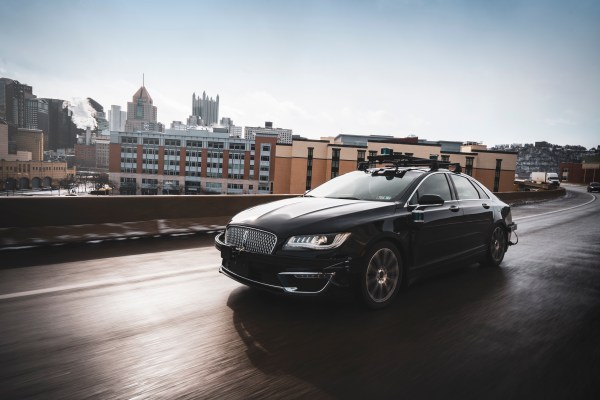Aurora, the buzzy startup founded by early pioneers of self-driving car technology who led programs at Google, Tesla and Uber, has raised more than $530 million in a Series B round led by Sequoia Capital and includes “significant investment” from Amazon and T. Rowe Price Associates.
The monster round pushes Aurora’s valuation to more than $2.5 billion. Aurora announced a $90 million Series A round last February from Greylock Partners and Index Ventures, bringing its total raised to date to more than $620 million.
Sequoia partner Carl Eschenbach is joining Aurora’s board, which already includes external directors Mike Volpi of Index Ventures, LinkedIn co-founder and venture capital investor Reid Hoffman and Ian Smith.
Lightspeed Venture Partners, Geodesic, Shell Ventures and Reinvent Capital are also participating in the round, as well as previous investors Greylock and Index Ventures.
The size of the raise — and the company’s new valuation — are certainly notable. But it’s the collection of new investors that provide the best view into Aurora’s ambitions.
The company has already ramped up in its considerably short life. Since Sterling Anderson, Drew Bagnell and Chris Urmson founded the company in early 2017, they have set up offices in Palo Alto, San Francisco and Pittsburgh and announced partnerships with Volkswagen Group, Hyundai and Chinese electric vehicle startup Byton. The company has also made some key hires, including SpaceX’s former head of software engineering Jinnah Hosein, who is leading a software engineering team.
Sequoia’s “stamp of approval,” (as Urmson calls it) at such an early stage is significant. The inclusion of Amazon and T. Rowe Price are the two investors that show a long-term strategy has been put into play.
Aurora will likely need more capital as it develops a “full-stack solution” for self-driving vehicles. So, its choice of investors are critical.
“We’re trying to be strategic about it and have people around the table who share the vision of where we want to go as a company and who understand how hard the problem is — this is not a short-term play — and knowing that ultimately we will need more capital,” Urmson told TechCrunch.
T. Rowe Price, which Urmson notes is savvy about macro trends, can provide the kind of long-term thinking Aurora will need if it hopes to survive in this ever-changing, and still nascent, autonomous vehicle industry.
Amazon, meanwhile, has the kind of logistical prowess and sheer amount of capital that could prove to be particularly beneficial to Aurora.
Aurora engineers are focusing on Level 4 autonomy, a designation by SAE International that means the car takes over all of the driving in certain conditions. Level 4 autonomy can be applied in different ways. And while most might assume it translates into moving people around in robotaxis, autonomy can also be applied to the movement of goods.
Enter Amazon. To be clear, neither Amazon nor Aurora indicated there was a customer relationship in play. But Amazon’s involvement screams “strategic partner.”
“We are always looking to invest in innovative, customer-obsessed companies, and Aurora is just that,” Amazon said in an emailed statement. “Autonomous technology has the potential to help make the jobs of our employees and partners safer and more productive, whether it’s in a fulfillment center or on the road, and we’re excited about the possibilities.”
